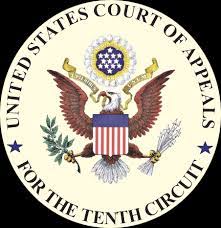
A divided 10th Circuit Court of Appeals partially invalidated the U.S. Environmental Protection Agency’s approval for Colorado’s plan to reduce smog near Denver on Monday, after an environmental group complained it essentially allowed “unlimited” pollution from fracking.
According to a Reuters report, a split 2-1 panel agreed that the EPA broke the law when it approved a state permitting plan in 2022 for smog reduction that excluded emissions from temporary pollution sources, including fracking.
The court did not invalidate other elements of the permitting plan, which aims to reduce emissions from major new or modified stationary sources, such as power plants, of air pollution.
The environmental group had claimed in its 2022 lawsuit that the exclusion allowed unpermitted releases of the gas ozone during initial stages of fracking. That process involves drilling into the earth and injecting water and chemicals at high pressure to break rocks and release the gas trapped inside.
Under the Clean Air Act, the EPA is tasked with approving state permitting plans to reduce pollution in areas like Denver, which has some of the worst ozone pollution in the U.S. Ozone is a key component of smog, which can exacerbate asthma and other health concerns.
Writing for the majority, Circuit Judge Nancy Moritz said that the “EPA acted contrary to the law in allowing Colorado to exclude all temporary emissions under its permit program” since federal regulations do not allow such an exclusion.
A dissent written by Circuit Judge Timothy Tymkovich said that the state plan would have been as strict or even stricter than the federal standards. He wrote that the court should have deferred to the EPA.
The case is Center for Biological Diversity v. U.S. Environmental Protection Agency, 10th U.S. Circuit Court of Appeals, No. 22-9546.





